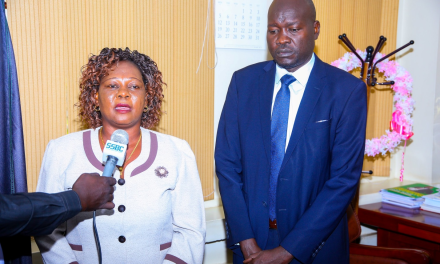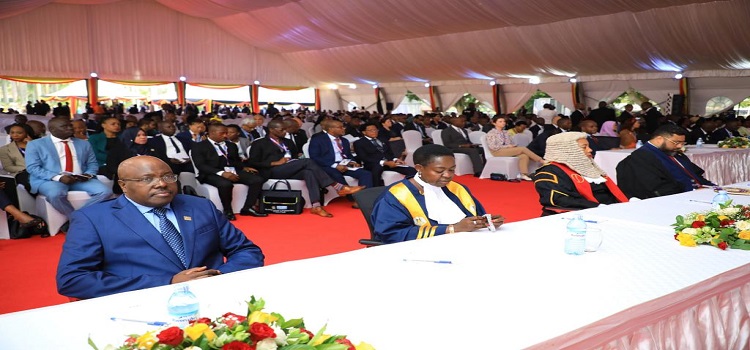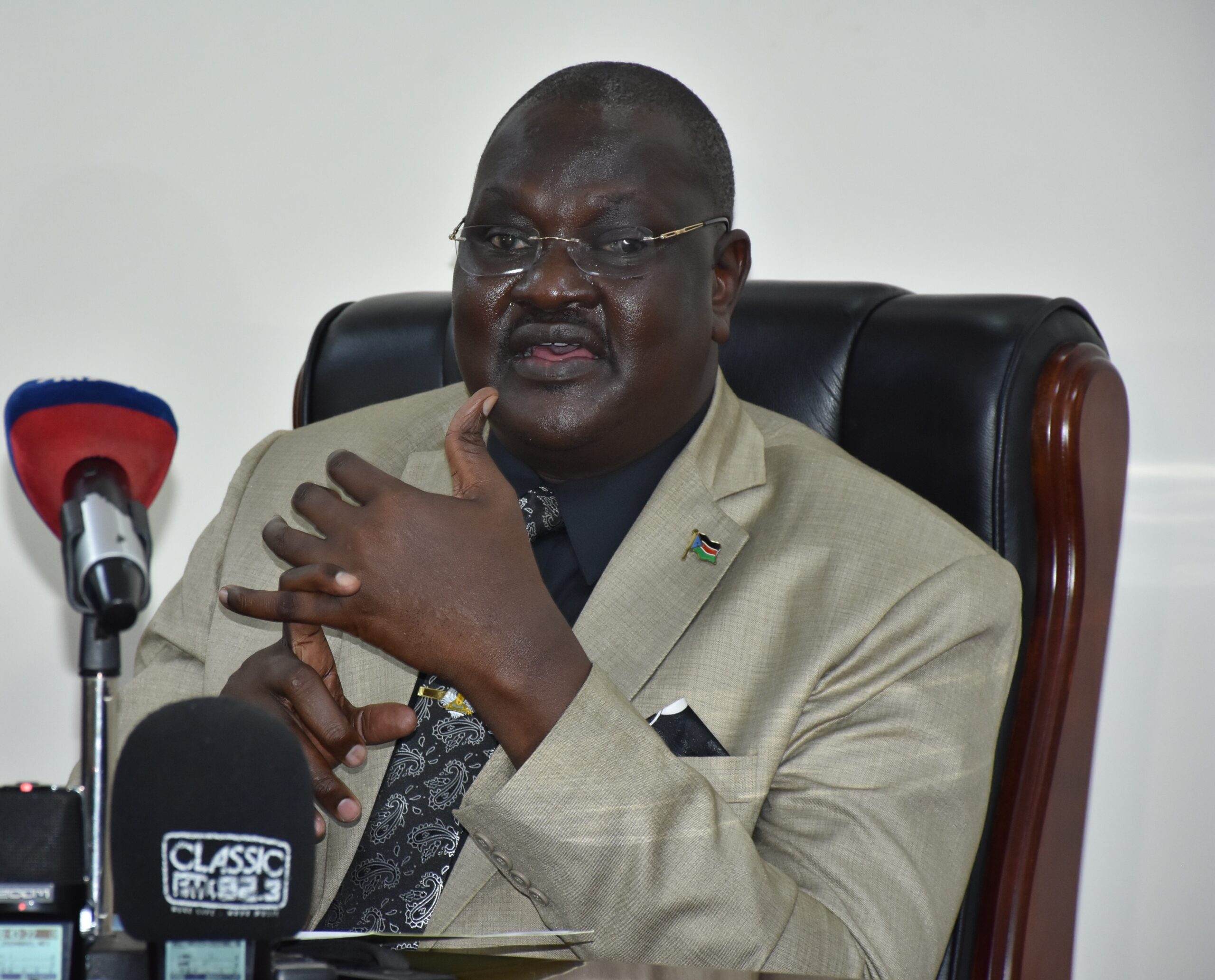
Only Holding All to Account in Ethiopia Will Ensure its Survival
by Mehari Taddele Maru and David Del Conte
On Nov. 2, 2022, the Federal Democratic Republic of Ethiopia (GoE) and the Tigray People’s Liberation Front (TPLF) signed a Cessation of Hostilities Agreement (CoHA) to end the war. In late August, Ethiopian, Eritrean, and Amhara forces launched the second phase of a brutal scorch-earth campaignand militarily took control of several important urban centres of Tigray, such as Shire, Axsum, Adawa, Korem, and Alamata. If the CoHA does not hold, and early signs indicate that it may not, human rights groups fear that another attempt to wipe out those who resist will follow as happened in the first phaseof the war in 2020 and 2021. And while the atrocity crimes continue to escalate, the push for justice and accountability has remained elusive. Governments such as the United States and European countries and institutions like the United Nations Security Council and African Union Peace and Security Council need to do more to promote the rule of law and hold all parties to the conflict to account.
The Escalating Violence in Tigray
Experts and human rights groups have documented the commission of atrocity crimes by parties to the conflict in Tigray. On Oct. 19, 2022, the United Nation’s top official for genocide prevention, Alice Nderitu, expressed her concern regarding the dangerous calls from political leaders and armed groups for the “killing of every single youth from Tigray.” She expressed further concern about diaspora blogs calling for genocide against the Tigray people. Earlier in September, the report of the International Commission of Human Rights Experts on Ethiopia (ICHREE), submitted to the 51st Session of the U.N. Human Rights Council in Geneva, had concluded that the warring parties in Ethiopia had committed war crimes and crimes against humanity. In some instances, the widespread acts of rape and sexual violence committed against Tigrayan women and girls had the “intent to destroy the Tigrayan ethnicity.” The United States Holocaust Museum likewise warned about “the heightened risk of genocide and mass atrocities against civilians in Tigray.” Genocide Watch, a highly regarded global think tank, also concluded that “Tigray [was] now victim to systematic violence with genocidal intent.”
The experts are not alone. Several high-level U.S. government officials have sounded the alarm over a repeat of atrocities in Tigray. Samantha Power, the head of the United States Agency for International Development, expressed her concern, quoting the International Crisis Group’s warning that “there [was] a serious risk of accelerating atrocities as the current phase of the conflict unfolds, with Ethiopian and Eritrean soldiers targeting Tigray’s civilian population as they recapture locations.” On Oct. 21, 2022, U.S. Permanent Representative to the United Nations, Ambassador Linda Thomas-Greenfield, expressed the U.S. government’s full and active effort to mediate an end to the war, adding “We remain prepared to take appropriate measures against those who obstruct a resolution of this conflict.” U.S. envoy for the Horn of Africa, Mike Hammer, who is facilitating the peace talks in South Africa, also expressed his concerns on the Eritrean army offensive in Tigray that “could inflame the fighting in the region” and called for “Eritrea to withdraw its forces from northern Ethiopia.”
A Diplomatic Solution Must Address Accountability
Given the fierce mass misinformation efforts surrounding the war in Tigray, international commentary on the ongoing crisis in Ethiopia has avoided directly confronting the parties to the conflict, lest the crisis only deepen further.
For nearly one-year, special envoys from United States and European have called for unfettered access to humanitarian assistance and an end to Ethiopia’s siege on Tigray, while fostering partnerships across the international community to pressure the parties to the conflict to end the war, and promoting peaceful solutions to the conflict through negotiations under the auspices of the African Union (AU). The five-month cease-fire between March and August this year, and the possibility of peace talks, gave oxygen to the approach, despite the denial of life-saving aid to millions and the ever-present rule of Eritrean dictator Isaias Afwerki spreading across the region.
But absent from this multilateral effort is any demand for accountability and redress. The Ethiopian government continues to deny access to two separate international investigations by the U.N. and the AU into the atrocities committed in Tigray, in addition to investigations by media outlets and human rights organizations such as Amnesty International and Human Rights Watch. With an ever-growing number of attacks affecting or directed at civilians, the lack of concerted efforts towards accountability is surprising — not least when compared to the speed at which the international community moved to deploy accountability mechanisms for the atrocities committed in the Ukraine war. Any chance for sustainable peace in Ethiopia must keep accountability front and center. What message is the international community sending to Ethiopia and Ethiopians at home and abroad if the intentional starvation of millions of “certain” Ethiopians is tolerated? With outrage and resentment growing across the country, what message is the international community sending if accountability for egregious atrocity crimes are ignored for the sake of “stability,” however short-lived?
Mehari Taddele Maru
Dr Mehari Taddele Maru (@DrMehari) is a Part-time Professor in the Migration Policy Centre and Academic Coordinator of the Young African Leaders Programme at the School of Transnational Governance, both at the European University Institute in Florence, Italy. He is also a senior expert at Mercator Dialogue on Asylum and Migration.
David Del Conte
David Del Conte was until recently a senior fellow with the Humanitarian Agenda Program at the Center for Strategic and International Studies in Washington, D.C. He is an independent consultant with over two decades of humanitarian experience with the United Nations and NGOs.
The denial of aid to civilians began in November 2020 and continues to this day in defiance of international law and the oft-repeated appeals of diplomats. One should not celebrate the successful delivery of a fraction of what civilians need to survive unless that success is put in the rightful context. One should not celebrate the release of innocent civilians arbitrarily arrested for being Tigrayan or in opposition to the State while thousands remain jailed for the same “offence.” Furthermore, one should not denounce only one party to the conflict for alleged atrocity crimes. Nevertheless, the vast scale on which violence has been wrought upon specific communities must be put into context. And this is where the West’s failure is most hurting Ethiopians. The perception of partiality, amidst misinformation campaignsand false declarations of victimization by Ethiopia’s government on one side, and stoic indifference to the suffering of civilians by the Tigrayan regional government on the other, leaves Western diplomacy toothless and ineffective.
Transparency, justice, and equality under the rule of law have long been elusive in Ethiopia. Stability for the country — and region – is crucial. But stability should not come at the expense of six million lives, and potentially countless more. If Ethiopia does not address its past and present, it does not have a future. All parties to the conflict in Tigray are responsible, none more so than Afwerki, who has long-resisted Western pressure. That must end and those who shield Eritrea, including the government of Ethiopia and those countries with mining and maritime contracts with Eritrea such as Canada, and the United Arab Emirates in particular, must also be held accountable.
If special envoys from the United States and Europe want to see lasting peace in Ethiopia, they must demand accountability from the masterminds and perpetrators of the atrocious crimes and push for remedies for all victims. In its recent piece, the U.S. Holocaust Museum proposed eight options for pursuing justice and accountability in Ethiopia, of which two are the most viable: the International Criminal Court (ICC) or an ad hoc regional criminal court on the African continent. The other options, namely a special criminal chamber in the Ethiopian justice system, transitional justice (TJ) mechanisms, and application of universal jurisdictions, are possible, but ineffective.
The industrial scale, political nature, military complexity, and scale of the atrocities means that any large-scale trial would naturally involve many victims and State-sponsored perpetrators from two countries. The Ethiopian domestic justice system lacks both the political independence and the institutional capability to dispense fair, free and speedy justice, and to hold the perpetrators accountable. Even more troubling, the overwhelming number of victims, mainly from Tigray, believe that Ethiopian justice and judicial institutions are part and parcel of the war on Tigray and the genocide against Tigrayans.
A transitional justice (TJ) mechanism is a non-starter. In the lingo of the Ethiopian government and its institutions, transitional justice is a technical fog to obscure impunity and abandon legal accountability. The Ethiopian proposal for transitional justice will serve the political purpose, not justice, and will lack impartiality to conduct a thorough investigation, fair trial, and effective remedies for victims. Reconciliation is essential for sustainable peace, but only if it accompanies legal responsibility.
Ethiopia is not a State Party to the Rome Statute – the treaty establishing the ICC. Thus, the ICC prosecutor cannot investigate and prosecute suspects of atrocity crimes. The other two avenues to bring legal action at the ICC would be for the U.N. Security Council to refer the Tigray situation to the ICC, or for Ethiopia to accept the ICC’s jurisdiction over the crimes committed.
Expressions of “concern” are woefully inadequate in the face of the brutality meted out against innocent civilians. An impartial accounting for crimes committed must be conducted and a mechanism set up for the country to heal. Without that, the country and the region may easily tear apart. Peace must come through accountability. For All.





































